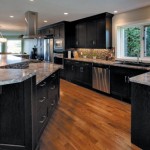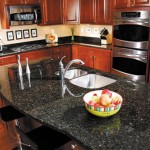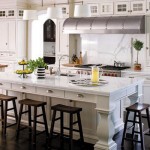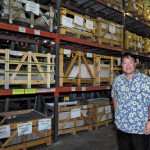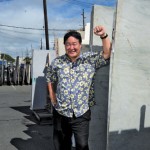With thousands of materials to choose from, narrowing down your choice for countertops can be overwhelming. Which material is right for you? Before you hunt down the perfect choice, make your life easier by evaluating how you are going to use the surface and what your options are. Ask yourself what you need from your countertop? How often do you cook? What do you cook? Are you a “free spirit” in the kitchen — meaning messy? Do you have kids, pets or any other critters that might require a little bit more from your countertops?
Learning the basics will help narrow down your options.
Granite
Granite is a natural stone comprised mainly of quartz, mica and feldspar. The word “granite” comes from the Latin word “granum,” meaning a grain, in reference to its coarse-grained structure. Granite is a siliceous stone, meaning it’s composed mainly of quartz-like particles.
Granite is a very durable stone and relatively easy to clean with mild soap and water. Avoid harsh cleaners, sand, dirt and grit build-up, as these will damage the finish. Granite also does not harbor bacteria.
Since granite is a natural stone, no two are alike and there are literally thousands of different colors. Granite should be sealed to increase the life of the finish. Sealing is a relatively easy process and should be done annually unless you purchase a special sealant that requires only one application. Pricing varies, but some colors can be found at affordable prices.
Marble
Marble is a calcareous stone made up of largely calcium carbonate. Marble is technically a limestone that has endured intense heat and pressure. Marble is a porous material, therefore it is susceptible to staining. Use coasters, and protect marble from things that will stain it such as wine, coffee, etc. Marble is extremely sensitive to acidic cleaning products. Also, avoid placing hot items directly onto its surface. Marble should be used in low-traffic areas, otherwise you’ll need to keep up the maintenance to make its look last. Marble must be sealed on a regular basis and it is gorgeous, but labor intensive if you plan on installing it in an area that is used often.
Solid surface (acrylic, quartz and polyester)
LG Hi-Macs, Viatera, Corian, Cambria, Avonite, Caesarstone, Silestone and Kerrock are all types of engineered solid surfaces. Solid surfaces are very durable, non-porous and possess anti-microbial properties. Some, like Corian, can be installed seamlessly.
The acrylic-based solid surfaces can scratch, but typically can be buffed out or partially replaced if needed. Color options are endless, from bright pink to solid white. Acrylic-based solid surfaces can be used to convey many styles and aesthetics.
Polyester based solid surfaces allow for a greater depth of color; however, they are more brittle than their acrylic and quartz counterparts.
Quartz solid surfaces mimic the look of granite, are incredibly durable and are low-maintenance. A quartz-based solid surface is about 90 percent quartz, making it extremely hard in addition to being beautiful. Solid surfaces are not cheap, but can be around the same price as marbles and granites.
Still have questions? Hawaii Home Expo is an authority on countertops, and its staff is knowledgeable and friendly. Hawaii Home Expo is located at 2933 Koapaka St. and is open six days a week. Call the company today at 695-3976 (EXPO).
HAWAII HOME EXPO
contact // 695-3976 (EXPO)
address // 2933 Koapaka St.
web // www.hawaiihomeexpo.com
Photos courtesy of Hawaii Home Expo
See more articles from: Hawaii Home Expo
